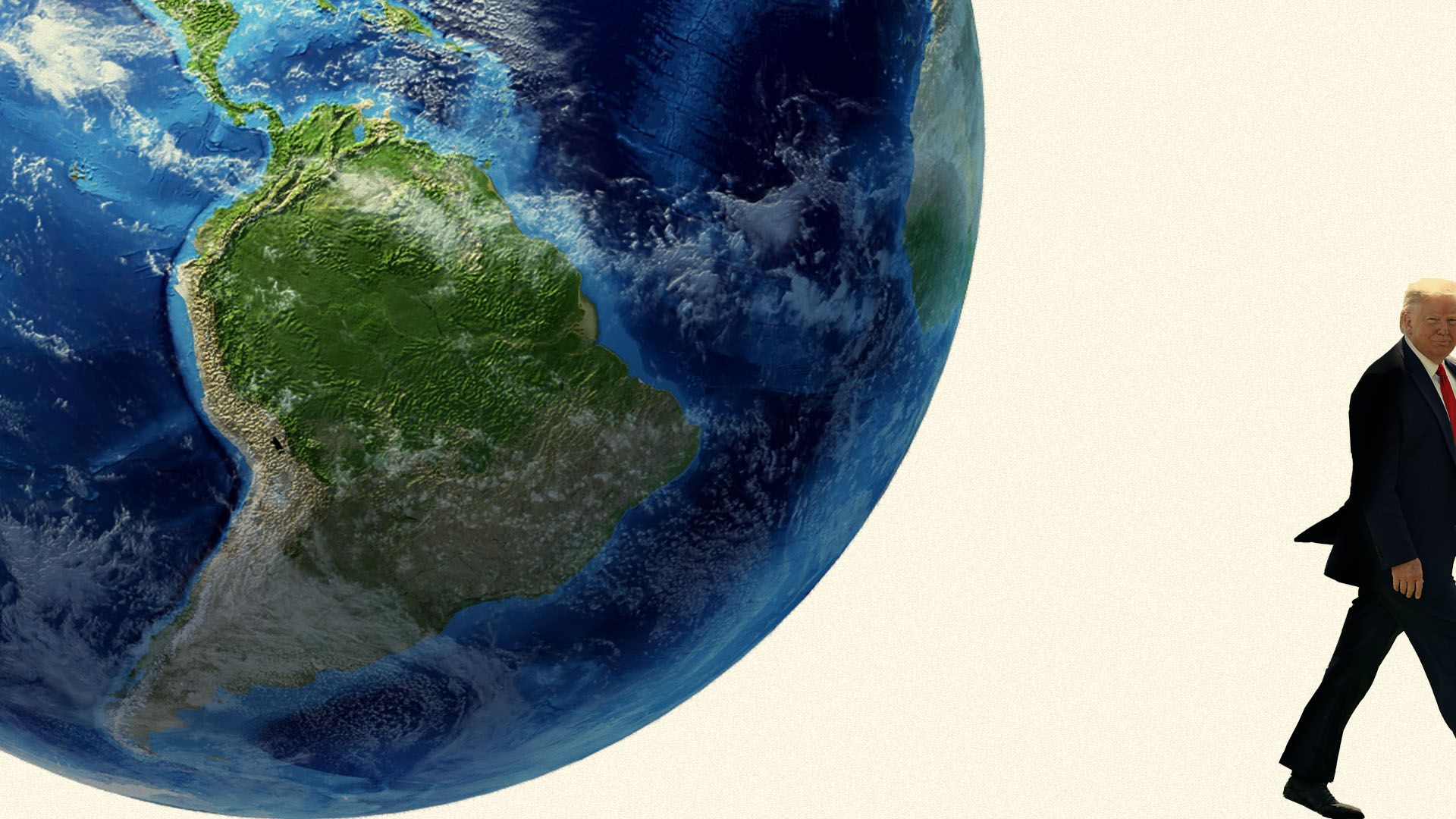U.S. exit from Paris accord chips away at global climate commitment
Add Axios as your preferred source to
see more of our stories on Google.

Illustration: Sarah Grillo/Axios
The Trump administration's formal notice of its intent to withdraw from the 2015 Paris Climate Agreement drives another nail in the coffin of U.S. ambitions to fight climate change and pushes the world closer to a less stable future.
Why it matters: Because the U.S. ranks as the second-largest contributor to greenhouse gas emissions, its retreat from the global battle against climate change exacts a heavy toll. This decision weakens pressure on other countries to reduce emissions at a time of peak global temperatures and atmospheric carbon concentrations higher than at any point in human history.
Where it stands: The U.S. announcement has not caused much outcry abroad, expected as it was. Nor has it yet kept other countries from continuing to join and honor the Paris agreement.
- Yes, but: It has branded the U.S. as a global outlier and risks weakening the resolve of other nations to cut their own emissions as part of the voluntary agreement.
- Meanwhile, federal recalcitrance has inspired businesses and local governments to redouble their own climate efforts. Hundreds of cities, as well as some 17 states and territories, have vowed to honor the country’s Paris accord commitments, potentially meeting two-thirds of promised American reductions.
Background: In retreating from action on climate, Trump has disregarded stacks of scientific studies warning about the consequences of “business as usual” emissions rates.
- A new analysis from the U.S. Army predicts that impacts in the next two decades could include blackouts, starvation, conflict, disease, thirst and even the collapse of the military as it struggles to maintain water supplies in arid conflict areas.
- The withdrawal is at odds with last year’s Intergovernmental Panel on Climate Change report that forecasts dire risks if emissions cause warming to exceed 1.5°C above historical averages.
What to watch: The world is barreling toward a future that threatens enormous suffering, from deeper droughts, bigger wildfires, rising sea levels and greater extremes of heat and precipitation. With another year until the U.S. can leave the Paris Agreement, a future administration could still reverse the withdrawal before its effects are fully felt.
Go deeper: Trump's ticking Paris clock
Alice Hill is senior fellow for climate change policy at the Council on Foreign Relations, former senior director for resilience policy on the National Security Council and co-author of "Building a Resilient Tomorrow."
